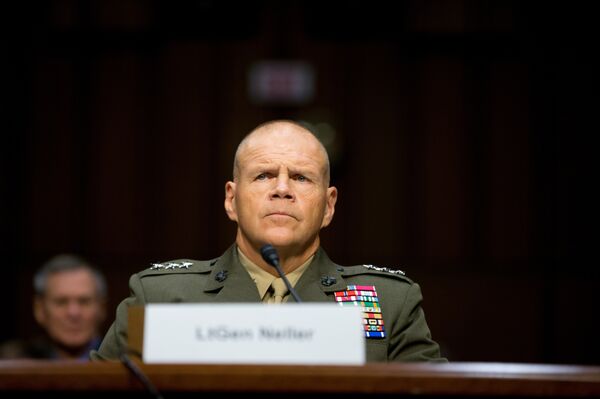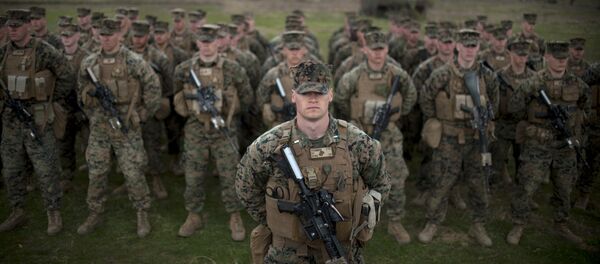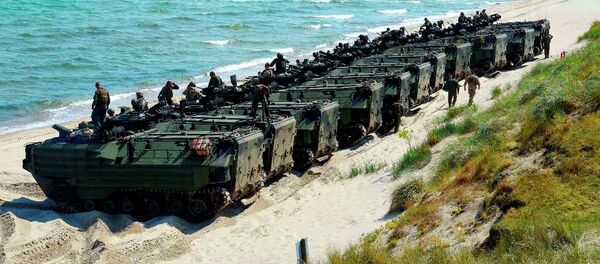At the Center for Strategic and International Studies, Neller told an audience, "What I do worry about … is the additional time it might take, and then being able to retain enough [troops]. These are very, very capable and qualified people and there [are] opportunities out there, so if we are going to train somebody to work in the cyber domain, for example, and we invest in them, and they get to the end of their enlistment, they’re going to have a huge room of opportunity."
Neller explained that this issue doesn’t just affect the Marines, but that the Navy, Army and Air Force face retention problems as well. "How do we convince them to stick around," he asked, "and wear this uniform, or wear a uniform, and do that when some of your companies are out there offering up two, three times as much money and they get to sleep in their own bed at night and no one is trying to kill them?"
"So far, enough of them take pride and are willing to accept the challenge, but I worry about that because as the force becomes more technical, the force becomes more capable and they have more options."
Marine numbers are expected to dwindle to 182,000 by the end of year, having undergone a drawdown of active duty soldiers. Neller believes that the drawdown, combined with increased need abroad, has created more stress for troops and equipment.

The commandant said that the Marines rely largely on new recruits to fill its ranks, that they must recruit 33,000 or 34,000 every year, and that one in 10 must be under the age of 25. Training is now more time consuming than it has been in the past due to new constantly upgraded technology. Not only must Marines learn how to use equipment, they must also learn how to function without it, in the event that networks are compromised.
"It takes a little bit longer to [train]," Neller said, "It used to be you could take somebody out on recruit training, they know how to fire their rifle, they’re physically fit, and they can carry a load and you put them in an infantry unit and they could function. I think we’re beyond that. The complexity, even at that level, let alone all the other levels, it takes a certain level of intelligence and ability to be trained."
Neller is optimistic, however, remarking that if the "right kind" of young people are recruited, the Marines can keep their desired pace of deployment.
"I believe that if we can find and recruit the right kind of people, which is really our center of gravity, the people that we have that are willing to stick their hand up in the air and say they want to become a United States Marine, I think we’ll be fine," he said.





